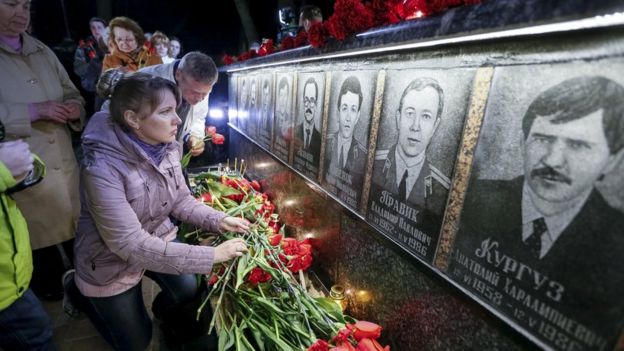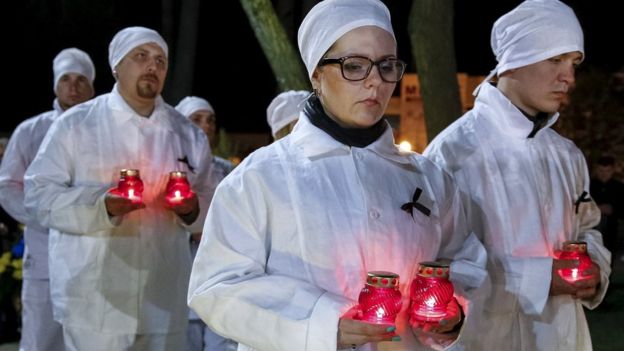A Fish Aficionado
I am going to make it through this year if it kills me
Ukraine marks 30th anniversary of Chernobyl disaster


Chernobyl's legacy 30 years on
Kinda weird how "fetishized" Chernobyl has become in media that the world still kind of ignores the actual people who still suffer from the accident.
In pictures: Dark Pripyat
Sirens were sounded at the same moment as the first explosion at the reactor, in the early hours of 26 April 1986.
The meltdown at the plant remains the worst nuclear disaster in history.
An uncontrolled reaction blew the roof off, spewing out a cloud of radioactive material which drifted across Ukraine's borders, into Russia, Belarus and across a swathe of northern Europe.
A memorial service was held in the town of Slavutych, built to re-house workers who lived near the nuclear plant.


Chernobyl's legacy 30 years on
Children are still being born with severe birth defects and rare types of cancer in areas near to Chernobyl, according to a British charity, three decades on from the world's worst civil nuclear disaster.
The accident on 26 April 1986 contributed to the downfall of the Soviet Union, changed the way the world thinks about nuclear energy and has affected an unquantifiable number of people in the region.
For British paediatrician Dr Rachel Furley, the "desperately sad" reality is that women who have spent their entire lives exposed to high levels of radiation are now having children.
She says that in the most severe cases babies have limbs missing and in one case a baby was born with two heads.
When Dr Furley is not treating children in Bury St Edmunds, she helps 800 youngsters in Gomel, a region of Belarus.
Kinda weird how "fetishized" Chernobyl has become in media that the world still kind of ignores the actual people who still suffer from the accident.
In pictures: Dark Pripyat






